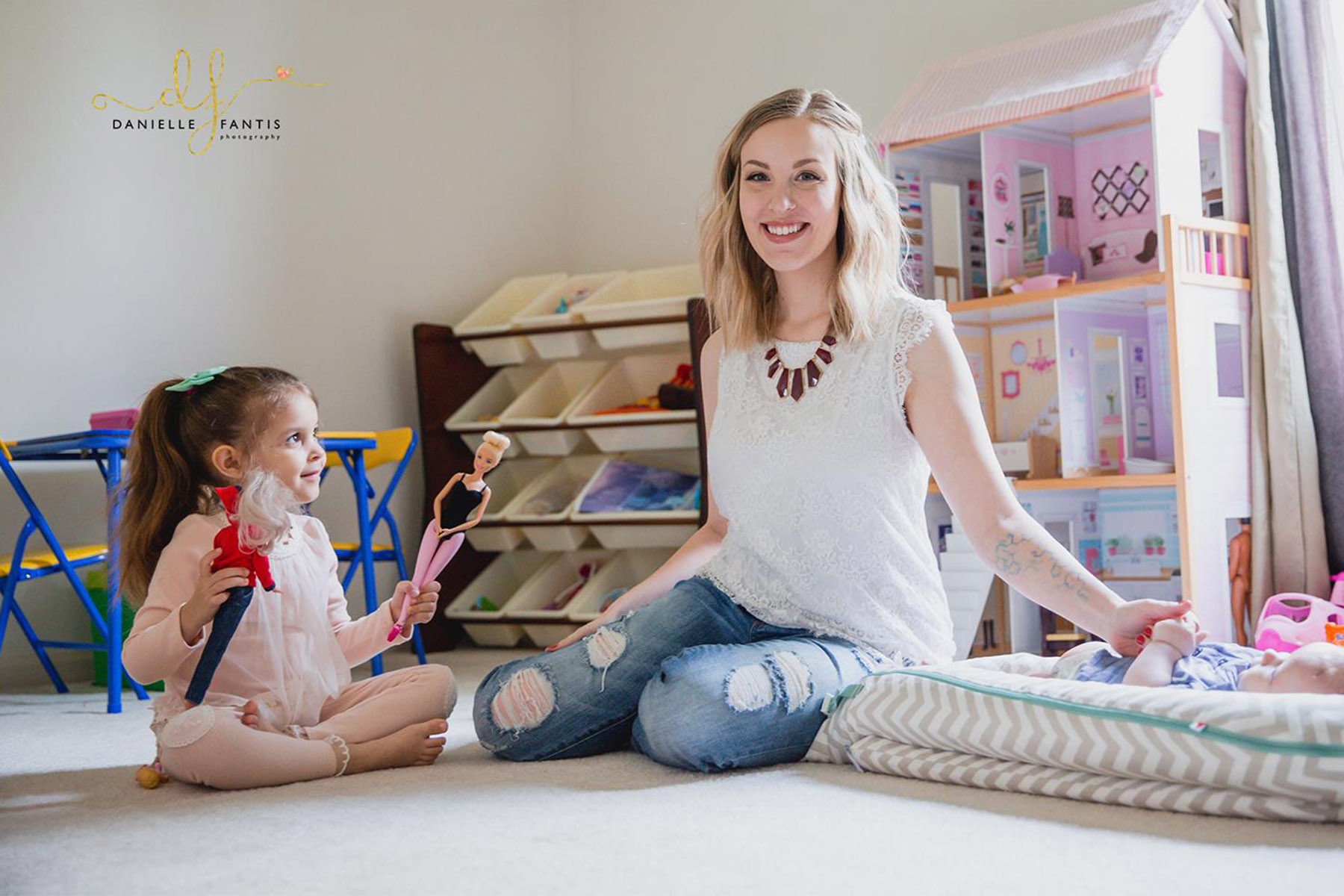Mom's postpartum photos show reality versus social media life
Until now, she only ever shared one version of herself.
— -- An Ohio mom of two has made waves on Facebook for a brutally honest post about life with postpartum depression.
Kathy DiVincenzo, mom to Gianna, 3 and Dominick, 3 months, posted two photos of herself on May 1. In one, she sits in a messy playroom, disheveled. In the next, she sits in the same playroom, this time pristinely clean and looking glamorous.
Both, she told ABC News, are her reality. But until May 1, there was only one of those versions of herself she ever allowed the world to see.

It was a conversation with her friend and photographer Danielle Fantis that led to the post that's now been shared almost 70,000 times. "I was scrolling through my Facebook feed, feeling upset that [it seemed] everyone else had it together when I didn't," DiVincenzo told ABC News. "But I was guilty of it too."
"'Why not you,'" she recalled Fantis asking her. In other words, why shouldn't she be the one to be truthful about her "life with postpartum depression, anxiety and OCD."
The feedback, she said, has been "overwhelmingly positive." She's been surprised, she said, not only by the outpouring of support from social media but the flood of emails and text messages she's received from people she knows who also went through postpartum depression.
"Some of these people are my good friends," she said. "And I had no idea. And they had no idea about me either."
DiVincenzo said she had postpartum anxiety with her daughter, and she said that she's come to reconize the symptoms since she become a birth worker in the time between that and the birth of her newborn son. "I was able to catch it," she said, though this time the anxiety also led to depression and OCD. "I'm still in the thick of it. It's not like I'm cured."
According to the U.S. Centers for Disease Control and Prevention, between 11 and 20 percent of women who give birth each year have postpartum depression symptoms.
DiVincenzo hopes the photos start a larger conversation about postpartum issues and that we can "end the cycle of pretending to have it all together."
After all, she pointed out: "Motherhood is hard, and it's even harder with a mental illness."




